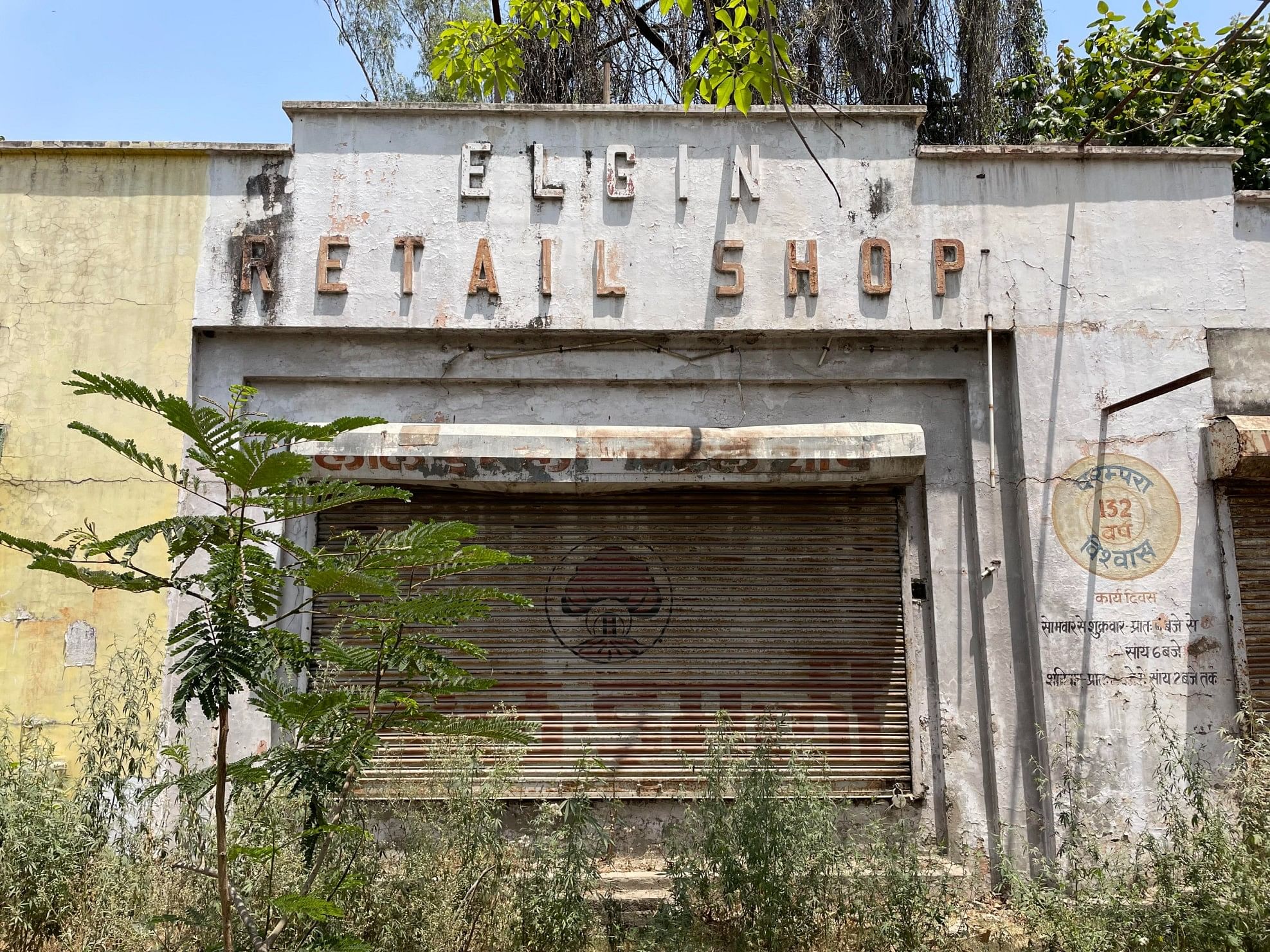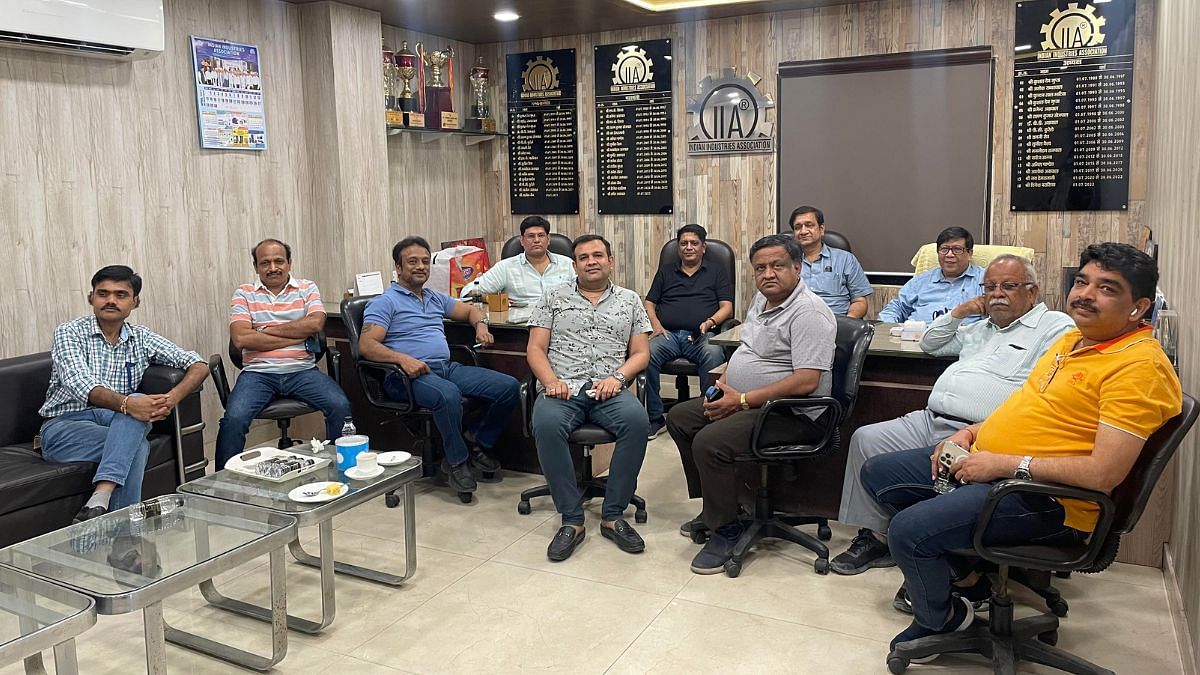The scene accurately captures the politics of this deindustrialised city, once called the “Manchester of the East”.
In the chapter on Kanpur in his 2015 book Restart: The Last Chance for The Indian Economy, journalist Mihir Sharma wrote, “Drive into Kanpur, and you drive with ghosts. Hours before you hit north India’s most industrial town, the ghosts begin gathering by the highway, empty-eyed, decaying, and desolate.”
Nine years later, Kanpur’s ghost-like industries remain unchanged, but the streets in which they stand are dotted with saffron flags. The business class complains of hostile government policies that have allegedly hurt their businesses — irrevocably in some cases. Their criticism against the government as far as its business-related policies are concerned is loud and clear. But so is their support for the Bharatiya Janata Party (BJP).
A mix of factors like ‘TINA’ (there is no alternative), Hindutva, pride over India’s purportedly elevated global status, a better law and order situation, contribute to the strange politics of entrepreneurs whose businesses have been battered over the last few years, but remain BJP loyalists.

Also Read: Nostalgia, betrayal & great expectations — why Gandhis still matter in Amethi & Raebareli
‘Vyapar ki halat patli hai’
In Uttar Pradesh, the Micro, Small and Medium Enterprises (MSME) sector contributes to 60 percent of the state’s industrial output. With a 9 percent share in total registered MSMEs in the country, UP ranks third among all the states in terms of their contribution to the sector. According to the state’s MSME and export promotion department, there are more than 9 million active MSMEs in UP, and after agriculture and allied farm activities, the sector is the biggest employer in the state.
Yet, talk to most of the business owners, and they tell you that the sector is bleeding.
“We had barely come out of the shock of demonetisation, GST and Covid, and the government has come up with this 45-day clause for MSMEs, which is bleeding our businesses dry,” says Alok Aggarwal, general secretary of the Indian Industries Association (IIA), who runs a footwear business in Kanpur. “If two parties have a contract between them, what business does the government have to tell them when they should pay each other?”
Aggarwal is talking about the new MSME rule that came into force this month, according to which companies must pay any pending bills to small businesses within 45 days. Failing this, the companies will face a tax liability on the pending amount. The mandate was brought in with the stated aim of ensuring that small firms receive their payments in time, but it seems to have backfired for MSMEs anticipating massive liquidity crunches.
“Vyapar ki haalat patli hai,” says Aggarwal, who has made several representations to the government to roll back the 45-day rule. Yet, he and the IIA have got little more than empty consolations.
BJP MP Satyadev Pachauri, who had also been the MSME minister in the UP government from 2017 to 2019, agrees. “The government should take this rule back,” he says. “What does the government have to do with free trade? I wrote to the Finance Minister about the implications of this rule… The problem is that these policies are made by IAS officers, who have limited understanding of ground realities. But I think the MSMEs should hold protests until this rule is rolled back.”
Raja Ram Kukreja, who owned a soap factory in Kanpur, had to shut shop 2 years ago. “We could not take the blow of GST and Covid,” he says.
“GST took away the reservation that I, as a small factory owner, had in terms of excise duty exemptions, and I was expected to pay the same taxes as Hindustan Lever. How would I have survived?” he asks. “Go look around Kanpur, there are dozens like me.”
These are not one-off instances. Owners of almost a dozen factories told ThePrint that their businesses have suffered losses of almost 15-20 percent in the last few years. A big and oft-repeated grievance is that the government allegedly provided no aid to small industries during the pandemic. “We were given no concessions in terms of electricity bills, bank interests, etc. We had to pay full salary to our staff, and the government did not bother to think that we might need help too,” says a chemicals factory owner, requesting anonymity.
“They do these big investment summits, but their policies and attitude towards small businesses is simply hostile… Big businesses are eating up our businesses,” he adds.
Some, like Kukreja, have had to simply shut shop. A few, it is anecdotally stated, have had to sell their homes to keep afloat.
Allegations of corruption by government officials abound. “Extortion by government departments has increased exponentially,” says Sunil Vaish, a plastics business owner, and former national president of the IIA. “If something would be done in 1000 rupees earlier, it is now being done for 50,000… Corruption has become more organised and streamlined now.”
Also Read: ‘Voter fatigue’, eye on Hindi heartland — what’s behind Modi’s renewed focus on Muslims & mangalsutras
‘Par aayega toh Modi hi’
Yet, all these grievances melt away, when it comes to supporting the BJP under Modi. “We have to choose between the lesser evil,” says Vaish. “We cannot go and vote for regional parties, which have no vision… As a BJP supporter, I have no option right now.”
The fact that the Congress is “barely fighting” is a reason for much of the support to the BJP. “Right now, there is much anger towards the government. If the Congress had been fighting at all, a lot of the votes would have gone from the BJP to them… But they are nowhere to be seen,” says Vaish.
The slump in business is not the only reason why the BJP’s votes could have potentially drifted to the Congress. BJP’s Kanpur candidate for the Lok Sabha polls, Ramesh Awasthi, is not a particularly popular face in the city, which has been a party stronghold for at least a decade now. In fact, he has faced tremendous opposition from BJP and RSS ranks in the city, ever since his candidature was announced last month.
According to sources in the BJP, Awasthi was announced as the candidate amid intense infighting within the party over a tug-of-war over the ticket between Neetu Singh, daughter of sitting MP, Satyadev Pachauri, who belongs from a prominent RSS family in the city, and Satish Mahana, speaker of the UP state assembly.
The announcement of Awasthi’s candidature led to posters calling him ‘Anjan Awasthi’. In fact, party workers recall how when Awasthi first came to Kanpur after the announcement of his candidature, a party worker accidentally felicitated the wrong person with a garland by mistake.
Yet, the infighting and the relative unfamiliarity of the BJP candidate is not something that the Congress seems to have capitalised on. Congress candidate Alok Mishra is considered a lightweight within the party, especially in contrast to Sriprakash Jaiswal, who had been a three-time Congress MP from the city until 2014.
In fact, as Mishra sought to file his nomination in Kanpur Tuesday, the cops present at the site refused to recognise him. Mishra then had to convince them that he indeed was the INDIA candidate. Kanpur goes to polls on 13 May.
But TINA is not the only factor that favours the BJP. It is also the government’s perceived achievements, which for several entrepreneurs, outweighs their own business losses.
“These are two separate things,” explains Aggarwal. “We are businessmen and we are citizens… As citizens, we are extremely proud of the Ram Temple, Article 370 revocation, CAA-NRC, infrastructural development, India’s image abroad, control on crime, and the focus on Hinduism,” he says.
“Why could Vajpayee’s government not implement these things? Because they did not have a majority… Only with a majority can the government achieve these things,” Aggarwal says, even as he concedes that an absolute majority can make the government aloof and less receptive to feedback, as in this case.
Sitting in the conference hall of the IIA in Kanpur, where several of its members meet every evening, the conversation slowly slides into the possibility of the government even revoking reservations, if it is voted with a majority — a possibility that makes most sitting there ecstatic.
A demonstrable improvement in UP’s law and order situation is also cited as a primary reason for support to the BJP. Yet, it quickly descends into an anti-Muslim tirade — one that is shared by an overwhelming majority of business owners spoken to.
“They (Muslims) had complete control over the city during Akhilesh’s (Yadav) time. They could do anything and get away with it,” says Sanjay Jain, also a plastics business owner. “They used to be swarming around Swaroop Nagar with their topis all the time… This has stopped only because of Yogi ji.”
“Naturally, we are Hindu, so we will vote for a government that looks after our interests. We see what has happened to a place like Europe too,” says Aggarwal.
For a mixed bag of reasons, and despite what they explain as some of the toughest times they have gone through in decades of running businesses, Kanpur’s businessmen are clear about one thing: ‘Aayega toh Modi hi.’
(Edited by Mannat Chugh)
Also Read: LS polls: Traditional jewellery makers of Nagaon flag ‘fake’ alert, demand GI tags

